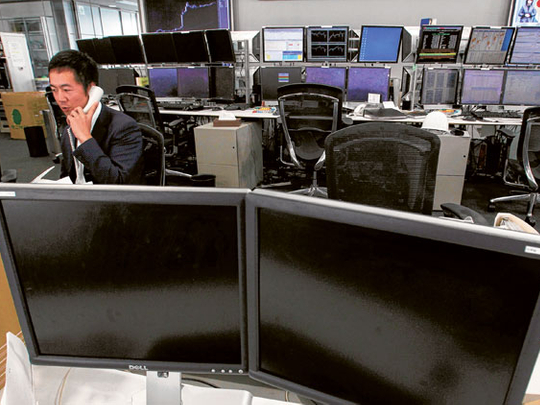
Beijing: The global economic recovery may be threatened by an array of "powerful shocks" including Japan's record earthquake and Europe's sovereign debt crisis, said Stephen Roach, nonexecutive chairman of Morgan Stanley Asia.
The impact of Japan's magnitude-9 earthquake, together with the euro-region's funding problems, turmoil in the Middle East, and a jump in oil prices are "worrisome" as the global economy's rebound from the recession of 2008 and 2009 remains weak, Roach said at a conference in Beijing yesterday. "When you have a weak recovery, you don't have a cushion that allows you to be able to withstand shocks," Roach said. "Right now we have a lot of shocks."
Losing out
Global equities lost about $1 trillion (Dh3.67 trillion) of market value last week and the yen touched a post-Second World War high amid concern the quake and the nuclear crisis will hurt Japan's growth. Crude oil reached a 29-month high of $106.95 a barrel in New York on March 7, as unrest in the Middle East continued.
Roach is more pessimistic than economists at Goldman Sachs and JPMorgan Chase , who said the world economy will bear up in the face of the twin blows from Japan and oil. Goldman Sachs forecasts expansion of 4.8 per cent this year, while JPMorgan predicts 4.4 per cent, surpassing the 3.4 per cent average of the past two decades.
The world economy will continue to grow even as Japan's earthquake causes "modest supply disruptions," Citigroup's chief US equity strategist, Tobias Levkovich, said on Friday.
More stimulus may be needed to spur a global recovery, Joseph Stiglitz, the Nobel Prize-winning economist, said in Beijing yesterday. "Austerity has never worked and won't work in the current context," Stiglitz said.
While austerity won't help the global recovery, stimulus programmes including "zero" interest rates and "open-ended" budget deficits may not work either, Roach said. "To do it with artificial stimulus, you have this image of a patient laying in a recovery room in a hospital," Roach said. "Whenever you withdraw the medicine the patient goes back into a coma."












